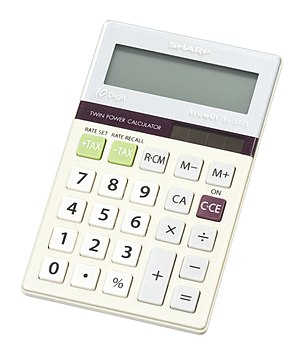 |
| English: A basic, Sharp-brand solar calculator. (Photo credit: Wikipedia) |
The new system ostensibly envisages that wage earners and pensioners will pay less taxes (by around 92 million euros), 869,000 families with one or two children will receive a tax break for the first time, and farmers will be taxed on their overall (including non-farm) income as well as on the sales of produce to middlemen, who will be obliged to issue invoices for purchases from individual farmers. An excemption will be made for small-scale producers. This development is expected to help bring agriculture product prices down and cut down on tax evasion, as 715,000 people out of a million declared farmers have income from other sources as well and declare farming income of only 260 euros a year on average.
Specifically, the new tax system will raise the tax-exempt ceiling for wage earners and pensioners from 5,000 to 9,000 euros, with all taxpayers earning annually up to 25,000 euros enjoying significant cuts in their tax burden. The new system will have three tax scales - from the current eight - with the highest tax scale of 40 percent for incomes of over 40,000 euros. The government will also reportedly introduce a tax rate of 10 percent for income from leasings or rentals.
Moreover, the new system eyes changes in the taxation of families with children.
Families with more than three children, the current annual tax break of 528 euros per child will drop to 450 euros per child, plus 40-50 euros per month per child, as part of a government policy to support Greek families. It will also be the first time that families with one or two children will receive a tax break.
The government also will raise a savings tax from 10 percent to 15 percent, while it plans to raise the extra yearly tax on self-employed professionals and enterprises to 650 euros and 1,000 euros, from the 500 euros they each pay currently, as a way to finance its plans to support families with more than three children, according to the same sources.
Finally, the corporate tax is expected to drop from 40 percent to 32.8 percent. (AMNA)
